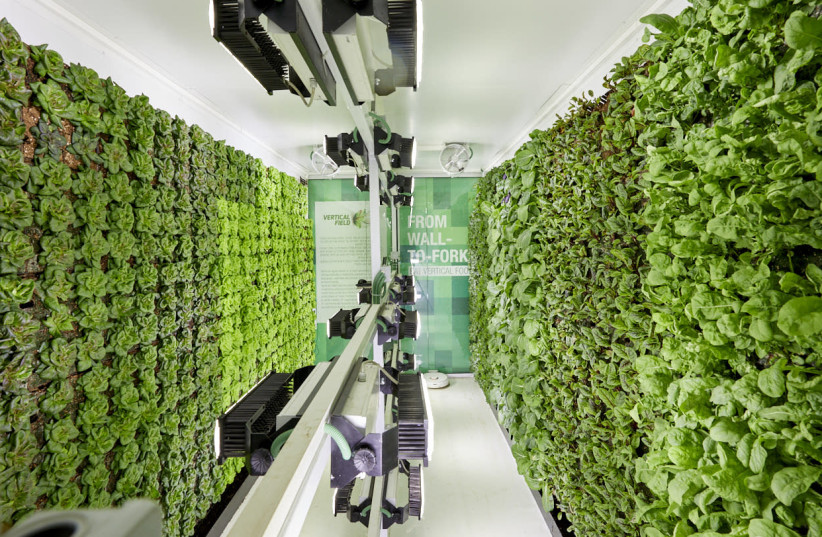Israeli and European Union lawmakers met last week to discuss strategies for combatting climate change and a global food shortage.
The two parties did this online as part of the ‘Farm to Fork’ Strategy (F2F), an EU-funded workshop series. The EU puts that strategy to place in order to tackle sustainability and environmental issues across the entire food chain as part of its "Green Deal."
According to F2F, the disruption of global food supply chains worldwide has been caused by a combination of the COVID-19 pandemic, the Ukraine-Russia war and extreme weather conditions that have been caused by climate change. Issues that derive from this include food insecurity and health threats from hunger to obesity.
The workshop was held with around 80 policymakers and included experts in agriculture and the environment.
Agriculture Ministry statements
Sandra Gallina, Director-General of the DG Sante for the European Commission, stated at the F2F EU-Israeli workshop that the current health pandemic brought "the need to be more resilient and robust and have food systems that work in all circumstances and provide food for all citizens," and stressed that the F2F Strategy has to go global.

"Israel's vision for its agricultural sector is to maximize production and contribute to rural and economic development while protecting land and water resources, reducing pollution and waste and contributing to biodiversity and landscape conservation," said Dr. Michal Levy, chief scientist and Senior Deputy Director-General at the Agriculture and Rural Development Ministry.
"Israel's current policies aim to everyone in every place has sufficient access to high-quality, highly nutritional and affordable food to lead a healthy life."
Levy's colleague, Dr. Yael Kachel, Head of Research, Economy and Strategy Division at the ministry, said that "there’s a lot of focus on short-term politics and not enough time to think about long-term strategies and not enough time to implement them. I think if we can quantify it, it will help to communicate it to policymakers and to mobilize budgets for acting on climate change."
Israel's progress
Israel made progress in areas of food production such as water efficiency and lab-grown proteins. In contrast, the country faces challenges such as the high costs of healthy foods and vegetables, and high rates of food rates.
"Israel's vision for its agricultural sector is to maximize production and contribute to rural and economic development while protecting land and water resources, reducing pollution and waste and contributing to biodiversity and landscape conservation."
Dr. Michal Levy
The large number of elections in the past few years calls Israel's capability into question when tackling the food crisis due to the lack of political stability. However, between the Israeli and EU participants in the workshop, both parties understand that further cooperation is required to tackle these issues.
The Environment and Climate Change portal is produced in cooperation with the Goldman Sonnenfeldt School of Sustainability and Climate Change at Ben-Gurion University of the Negev. The Jerusalem Post maintains all editorial decisions related to the content.
